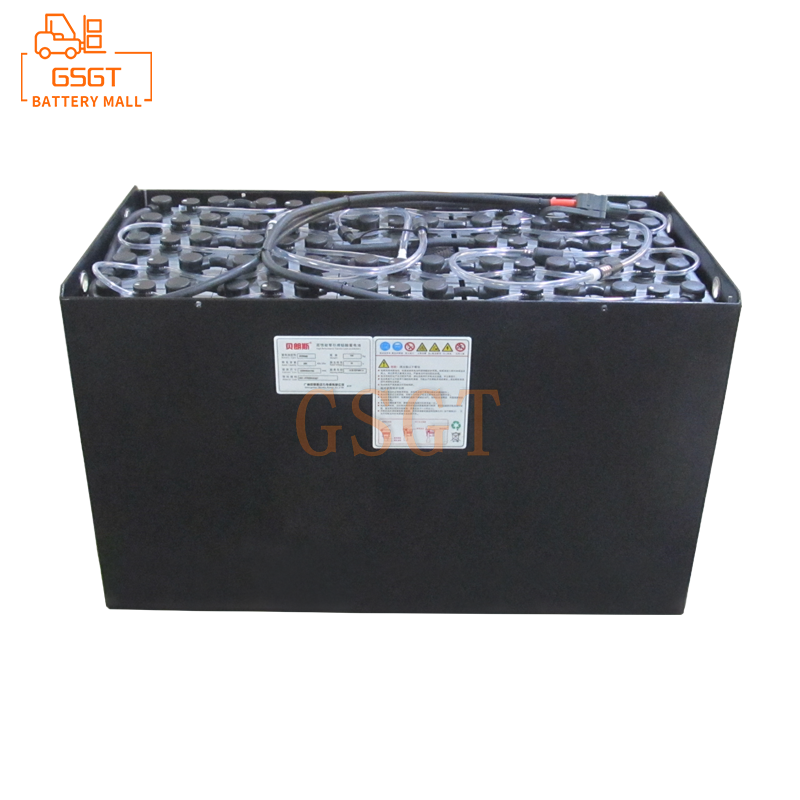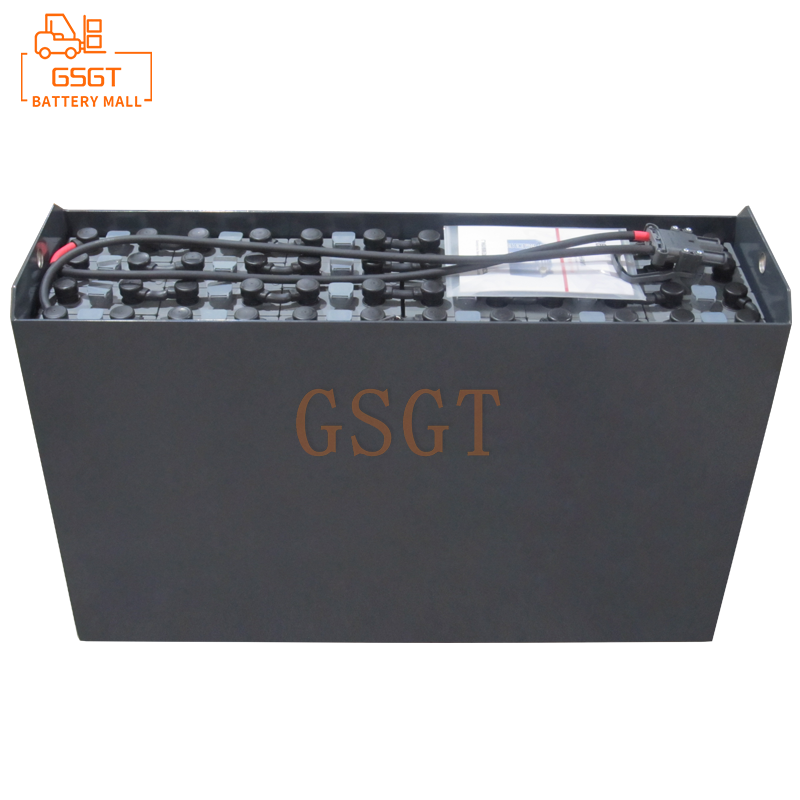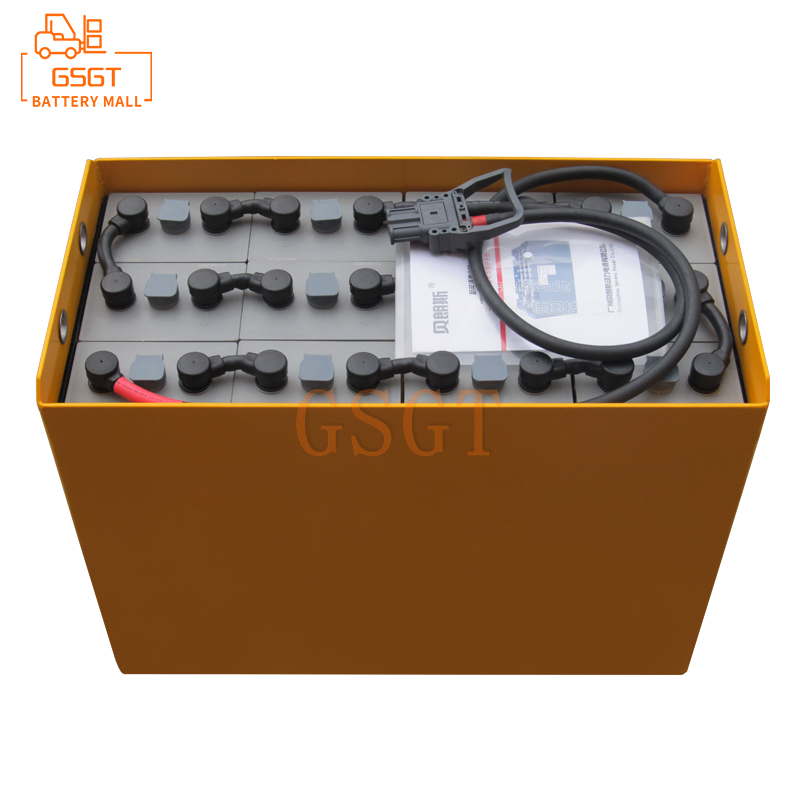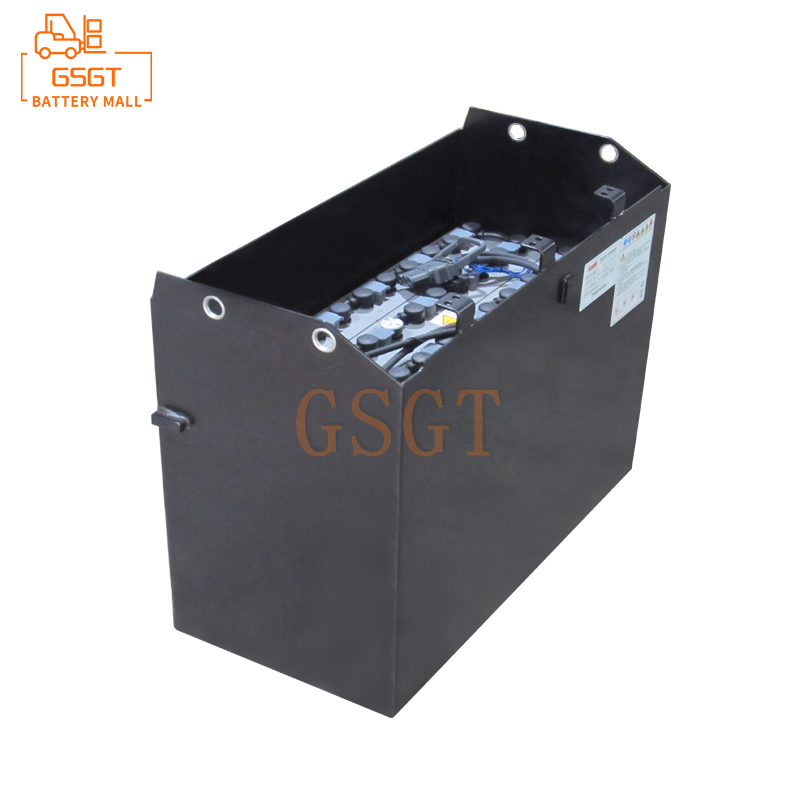Time:2025-07-24 10:03:06
Browse:618
In the fields of industrial production and logistics transportation, forklifts, as important handling equipment, often need to undertake heavy-load operation tasks. Lead-acid batteries, as the power source for many forklifts, their performance in heavy-load operations directly affects operational efficiency, cost control and production safety. The following will conduct a detailed analysis of the performance characteristics of forklift lead-acid batteries in heavy-load operations and answer related questions.
The core impact of heavy-load operations on the performance of lead-acid batteries in forklifts
Changes in battery life
When performing heavy-load operations, the power output required by forklifts increases significantly, and the discharge current of lead-acid batteries also rises accordingly. In this case, the battery's endurance will be significantly affected. Generally speaking, lead-acid batteries that can operate continuously for 6 to 8 hours under standard loads may have their battery life shortened to 4 to 5 hours or even shorter when operating under heavy loads (more than 70% above the rated load). This is because when a large current is discharged, the rate of chemical reactions inside the battery accelerates, and the active substances are consumed more quickly, resulting in a rapid decrease in battery capacity.
For instance, in large logistics warehouses, when forklifts frequently handle goods weighing over tons, batteries that originally only need to be charged once a day may require mid-charge replenishment to complete the day's tasks.
Fluctuations in discharge efficiency
The discharge efficiency of lead-acid batteries will decrease as the discharge current increases. During heavy-load operations, due to the large discharge current, the plates inside the battery may experience polarization, causing a portion of the electrical energy to be converted into heat energy and lost, resulting in a reduction in the actual effective output electrical energy. Data shows that when the discharge current exceeds 1.5 times the rated current, the discharge efficiency of lead-acid batteries may drop from 80% - 85% under standard conditions to 70% - 75%.
This fluctuation in efficiency will be directly reflected in the power output of the forklift, which may lead to slow acceleration and reduced climbing ability of the forklift, affecting the operation progress.
The challenge of temperature adaptability
When operating under heavy loads, lead-acid batteries generate a large amount of heat during high-current discharge, causing the battery temperature to rise. When the battery temperature exceeds 40℃, the internal chemical reactions will become extremely intense. This not only accelerates the corrosion of the plates and the shedding of active substances, but also may lead to an increased evaporation rate of the electrolyte, affecting the battery's capacity and lifespan.
In low-temperature environments, heavy-load operations pose a greater challenge to lead-acid batteries. Low temperatures will increase the viscosity of the electrolyte, slow down the ion diffusion rate, and reduce the battery's discharge capacity, which may lead to problems such as difficult starting and insufficient power. For instance, in outdoor cargo yards during winter, when forklifts are operating under heavy loads, the performance of batteries deteriorates more significantly.
Answers to Key questions
Question: How can the service life of lead-acid batteries in forklifts be prolonged under heavy-load operations?
Answer: To extend the service life of forklift lead-acid batteries under heavy-load operations, the following aspects can be considered. First of all, it is necessary to ensure standardized charging and avoid over-discharging. When the battery power drops to 20% - 30%, charge it in time. During the charging process, overcharging should be prevented and the principle of "shallow discharge and frequent charging" should be followed. Secondly, regularly maintain and service the battery, including checking the electrolyte level, replenishing distilled water (not tap water or electrolyte) in a timely manner when it is insufficient, cleaning the oxide on the electrode terminals, and keeping the battery surface clean and dry. In addition, after heavy-load operation, do not charge the battery immediately. Let the battery cool down to room temperature before charging to reduce the damage to the battery caused by high temperature. At the same time, avoid conducting heavy-load operations for long periods in extreme temperature environments. If necessary, take insulation or cooling measures.
Question: What should be done in an emergency when the lead-acid battery of a forklift suddenly loses power during heavy-load operation?
Answer: If the lead-acid battery of a forklift suddenly loses power during heavy-load operation, the forklift should first be parked in a safe position, and the handbrake should be pulled to prevent the goods from sliding or the forklift from moving, which could cause a safety accident. Then check the battery connection lines to see if there is any loosening, detachment or short circuit, etc. If so, deal with it in time. If the circuit is normal, it might be due to a depleted battery or an internal fault. At this point, it is necessary to contact a professional maintenance person for inspection and repair. While waiting for rescue, do not forcibly start the forklift to avoid further damage to the battery. To avoid such situations, it is recommended to check the battery power before heavy-load operations, plan the operation time reasonably, and regularly test the battery to detect potential problems in a timely manner.
Summary
The performance of forklift lead-acid batteries in heavy-load operations is influenced by multiple factors, and their endurance, discharge efficiency and temperature adaptability will all change accordingly. To ensure the efficient and safe operation of forklifts during heavy-load operations, enterprises should attach great importance to the daily maintenance and management of lead-acid batteries, rationally arrange charging and usage based on actual operation conditions, and promptly handle any problems that arise. Only in this way can the performance of lead-acid batteries be fully exerted, operating costs be reduced, and the smooth progress of production operations be guaranteed.

$3260

$2530

$2530

$2290

MESSAGE
Professional And Efficient
Security
Affordable Price
Professional Services